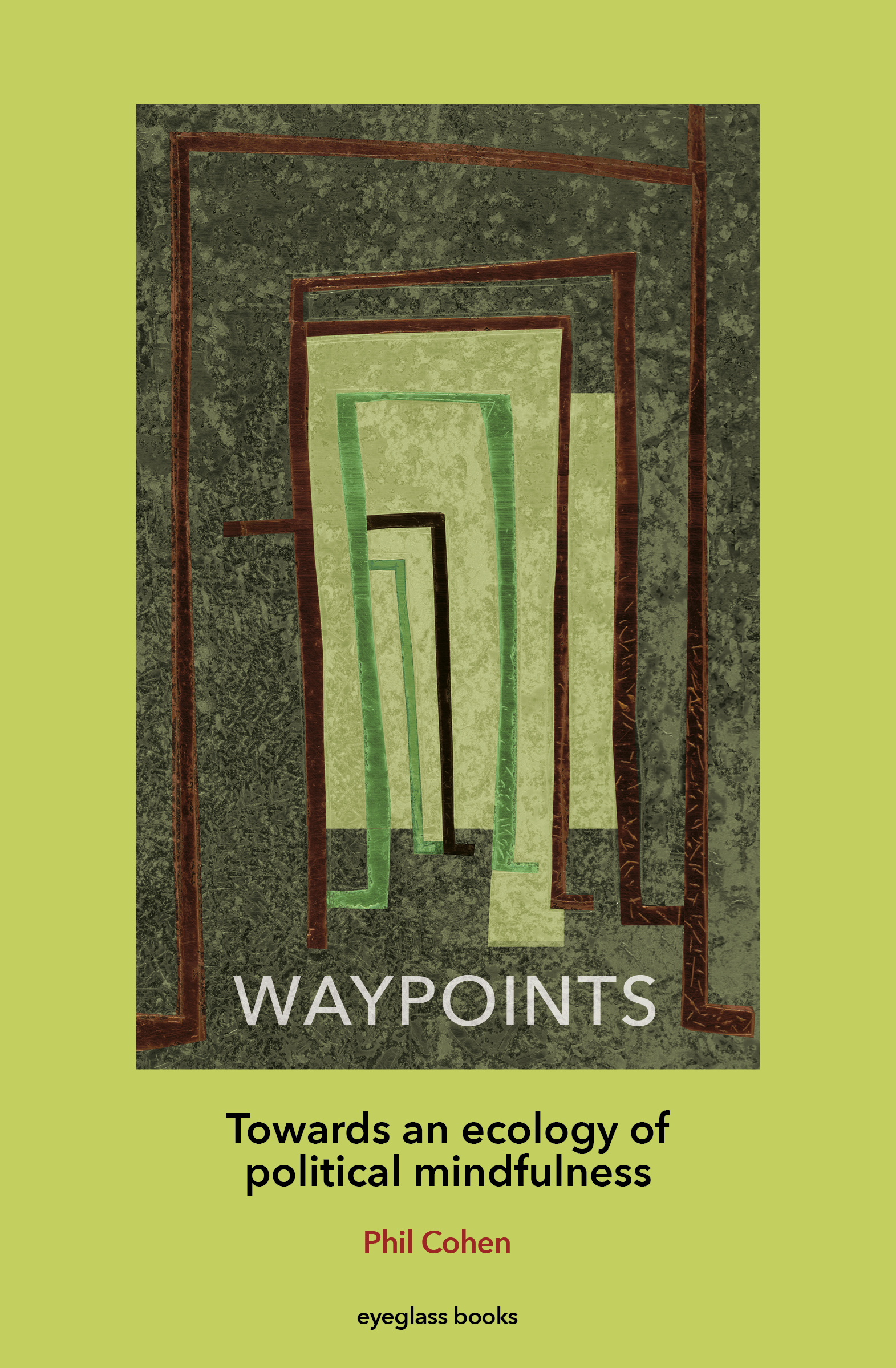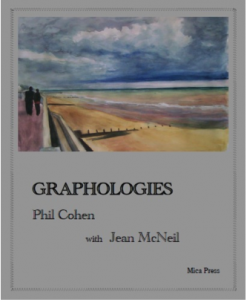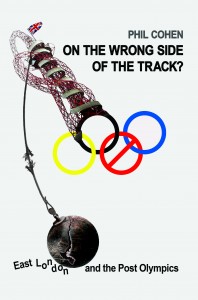There must be some way out of here
The title of this discussion might at first sight appear to be a plea for some kind of radical escapology. We are in a mess, how do we get out of it? There are currently a number of escapisms on offer on the Left. An escape into the past via nostalgic evocations of a world of working class community support which has been lost . Escape into the future of utopian projects, with dreams of reaching the sunlit uplands of fully automated luxury communism courtesy of AI and Universal Basic Income.
These responses merely mirror the ‘one leap and we are free’ mantra of the Brexiteers, with their vision of Albion unbound at the stroke of midnight on January 31stst , magically freed at last from the oppressive Brussels Yoke, fortunately no longer to be accompanied by a version of the national anthem re-written for the juvenile fans of Peppa Pig : bung a bob for bing bong ben .
In the context of the Bob Dylan song ,All Along the Watch Tower a rather different interpretation emerges. The phrase you will remember is extracted from a conversation between two archetypal outsiders, the Joker and the Thief. The Joker or Fool is a trickster figure, a shape shifter who speaks truth to power in the forms of riddles, aphorisms and coded references . As a Tarot card the Joker represents new beginnings, having faith in the future, the capacity to improvise and a belief in ultimate success ,all qualities which the candidates who aspire to succeed Corbyn might well aspire to. However as Batman’s arch enemy the Joker also takes on more sinister overtones as an agent of chaos , a psychopathic clown, an enemy of the political establishment exposing its many hypocrisies. It is not surprising that The Joker became a mascot of the Tea Party movement in the USA , an anti-hero of the alt-right and the subject of a popular cult. At first sight the thief , seems a more straight forward character, except that , as Bob Dylan tell us elsewhere ‘to live outside the law you must be honest’ , and lets recall that in Greek mythology Hermes , the guardian of the crossroads, is the patron god of travellers, poets , athletes, orators and yes thieves who all in their different ways transgress social norms..
So these two characters have more in common with each other than you might imagine in offering a perspective which challenges conventional wisdoms .In the song they find much uncommon ground. It goes on :
There is too much confusion
I cant get no relief
We can all identify with these lines . I think. The scale of Labour’s defeat has certainly sowed a lot of confused responses : some blamed the Tory media, other internal failures, none of these knee jerk reactions gets to grips with the deeper causes and consequently brings no relief.
Then the source of confusion is identified :
Businessmen, they drink my wine,
Plowmen dig my earth.
None of them along the line
Know what any of it is worth
Listening to this today, I think, brings to mind the debased currencies of our post truth political culture, dominated as it is by fake news; any notion of the good society where people enjoy the fruits of their labour within a moral economy of worth , framed by values of social equality and economic justice , all that goes unrecognised and unvalued, unless it can somehow be marketised, turned to commercial purpose or corporate advantage or perhaps worse still, abstracted into a moralistic principle , in strenuous exercises of virtue signalling..
The problem is not just that political messaging is so confused , it is that so many people can’t get any relief from the anxieties and insecurities which crowd in on them from all sides as a result of more than a decade of austerity, making them feel hopeless and helpless before the onward march of platform capitalism and the gig economy; it is not surprising that in this situation we seek escape routes. So we escape into various kinds of addictive crazes and cravings, we become shopaholics, workaholics or alcoholics, we pursue alternative careers as drug or sex addicts , or , in my case, compulsively watch Newsnight. We flick channels, surf the net, in search of some ultimate fix of meaning . So many different ways of institutionalising attention deficit disorder. And then inevitably there are the therapies which promise instant dis-alienation, which offer to liberate us from the 24/7 culture of distractions, to disentangle our selves from the toils of commodity fetishism and find some more authentic and meaningful path to fulfilment. Let’s take back control of our inner lives, shake off our mind forged manacles and embrace – well what exactly?
For increasing number of people it is about embracing the here and now. Living as fully as possible in the present. Finding a way of shrugging off the burden of a past which cannot be changed and a future which seems either beyond reach or else a horizon of horrendous possibility . Presentism comes in many forms and one of the most popular is called mindfulness.
McMindfulness
Mindfulness is currently all the rage . Its evangelists urge us to cultivate mindfulness as form of resilience in uncertain times. Its core self-help message is to forget about the past and future, and instead concentrate on living fully in the present. It consists of an easily learned do- it -yourself technique of mind- and body- therapy, training people to become more aware of internal psychological states in relation to their immediate environment. It is currently being rolled out across the NHS as an eight week treatment programme for chronic anxiety and depression , a cheap alternative to both medication and psycho- therapy. It is being introduced in schools and universities as a means of helping students of all ages and stages deal with the combined stress of peer pressure and exam pressure. Radio Three now has its mindfulness moment where they play music designed to induce a state of calm introspection. Arvo Part as a tranquilliser. Corporates are taking it up to promote greater equanimity and productivity amongst their workforces. Even the Armed forces are experimenting with using it as a way of combatting battle fatigue and post traumatic stress.
I recently attended a packed lecture about MacMindfullness given by two of its leading exponents at the British Library; it was to promote a book they had just written spelling out its philosophy which they presented as a unique amalgam of Buddhist psychology and Western cognitive behavioural science . We were urged to become grounded in our bodies, turn our minds away from bad news , concentrate on the joyful aspects of our lives and take back control of our capacity to attend to what is important for our personal development. There was a lot of talk about the need for compassion and making an appropriate response to other’s predicaments. For instance we were asked to imagine a stranger knocking on our door while hosting a dinner party .. Would you invite him or her in to join the party , or slam the door in their face. The appropriately mindful response, we learnt was to do neither: the mindful thing was to give the stranger a glass of water and then tell them to go on their way to avoid upsetting your guests. I couldn’t resist thinking that perhaps the really mindful response as here being defined was to ask the stranger whether the glass of water was half full or half empty , and then , depending of their reply either congratulate them on their positive attitude to life or suggest that they go sign up for a mindfulness class.
The mindfulness movement is one of a number of attempts to address the profound psychological malaise of contemporary society and culture; it aims to promote emotional well being through a form of mass therapy. Another example of which is an article in last Sunday’s Observer by Richard Layard, an ex economist who was appointed by Tony Blair as the UK’s happiness Czsar. It consists of little more than a string of vacuous platitudes , or what Marx called ‘dumb generalities’ about the need for everyone to be kinder, nicer and gentler to each other, to promote greater emotional intelligence and build a more caring and sharing society based on mutual respect – whilst of course leaving its basic structures of power, and inequality intact.
It is easy to ridicule the psycho-babble that goes along with the mindfulness project and to be cynical about the motives of its gurus, the path to hell was always paved with good intentions, or a Zizek puts it, its when we try to escape from the toils of an ideology that we are most prone to reproduce it in another, perverted guise.
But the success of the movement does point to a very real set of issues which the Left has signally failed to address and which in part account for its present unpopularity; in particular the Left’s hyper- rationalism , it refusal or inability to recognise that the heart has its reasons which reason does not know , and to dismiss that as irrationalism or false consciousness; I think this neglect of what they dismiss as ‘ the subjective factor’ in history helps explain the negative perceptions and experiences which many who have come into direct contact with Left activism have sometimes had. This blindness is epitomised in the mantra ‘don’t mourn. Organise’ which we heard so much of after Friday December 13th, often accompanied by the rider: ‘ we won the argument even if we lost the election’.
At this point it is perhaps worth reminding ourselves that that there is an alternative and more critical concept of mindfulness which long pre-dates the current fashion for it and which has quite different philosophical foundations – namely in phenomenology as originally elaborated by Edmund Husserl at the beginning of the 20th century , and was further developed in the dasein analysis of Martin Heidegger in a treatise entitled Besinnung ,translated as Mindfulness and then taken up in the humanistic psychology of Carol Rogers and Erich Fromm in the 1960’s .
I haven’t got time to go into this but let’s just say we are talking about an attitude of mind which is at once historically grounded and attuned to the exigencies of being in the world. It is not about being immersed in the world of the senses , or striving to become detached from it, as a pathway to Enlightenment but an awareness of being always and already embedded in the temporal, spatial and linguistic conditions of human existence and its finitude. It also about suspending judgement , not rushing to pin down the meaning of a phenomenon through the application of some a priori concept or category, but rather closely following the unfolding trajectory of a situation , process or event, remaining sensitive to all its nuances and possibilities, without presuming to predict its outcome. This is very close to what Keats called ‘negative capability- the capacity to remain in mysteries and doubts, with any irritable reaching after fact’. It is not a million miles from what Bruno Latour means when he recommends political scientists to keep their analysis flat as they track how electorates are assembled and dissembled into binary categories, for example as leavers or remainers..
The battle for hearts and minds
My suggestion is that we apply this more radical notion of mindfulness not to the adaptations of the individual psyche, but to our political culture and its transformation.
We can start by asking what does political well being consist in? It clearly has something to do with the level of public trust in the political process, in its forms of representation, and in the effectiveness and accountability of its agencies. Britain comes just behind Russia in the league table of public distrust in political institutions.
It also has a lot to do with the quality and extent of participations in public decision making , the transparency of governance – or the lack of it : what is usually referred to as the democratic deficit. What does it take to create a political culture of the Left that encourages internal debate and dissent as well as engaging in dialogue and alliances with other political groupings? A political culture that is more than the ritual observance of ideological protocols , that nurtures a spirit of curiosity and enquiry , that does not stay within its institutional comfort zone but continually improvises new platforms of civic engagement , and replaces the megaphone and remote digital targeting with human listening posts . Is it possible to promote a form of political education which is more and other than a transactional exercise in propaganda recruitment? Can we politicise matters of everyday concern in ways which do not de-personalise or massify the people concerned, or put them into binary boxes but instead does justice to their complexity and singularity of their experience.
The Left needs to help build a more democratic and open form of political culture, beyond the intense but narrow loyalties and elective affinities of the tribe with its one for all and all for one solidarities restricted to those few who think , live , look and behave like us; instead it has to offer a platform for the multitude, for the many people who are different from us, but who share enough uncommon ground to support a more generous vision of human possibility than is presently available.
One thing is for sure we are long way from that. We have a Leftist political culture which oscillates between a paranoid/schizoid position ( everyone who is not with us is against us ) and manic/depressive position. This is a bi-polar culture whose mood swings from manic denial of painful realities, to feeling overwhelmed by them, between prophecies of doom and new dawn, cenotaph and jubilee. Against this background Gramsci’s mantra has been reversed. Optimism of the intellect is flourishing , with flamboyant manifestos for post capitalism abounding but that goes hand in hand with pessimism of the will , a total inability to spell out the practical steps that might be required to get us from where we are now to where we want to be.
The manic/depressive position also has been articulately programmatically. We have the manic accelerationists who believe that intensifying the pace of technological change will mean that digital capitalism will implode as the rate of profit falls to zero and a new kind of society will emerge in which the old hieriarchies of wealth and power will somehow magically disappear. On the other side those who think with Marx that immiseration is the ‘absolute general law of capital accumulation’ and that the introduction of automation against a background of wage stagnation means not only that the share of labour in income will continue to fall, but that the demand for all types of labour will too, leading to chronic under employment and creation of whole new surplus populations living on the margins. But then in a sudden reversal this population is transformed into an agent of revolutionary change. Unfortunately this does not take into account the psychological dimensions of immiseration , of living precariously, in chronic insecurity and debt . People who have become immured to austerity, who rely on food banks to feed their children, whose time horizons extend to paying the bills at the end of the month and who are often struggling with chronic illness and bad mental health, are not likely to be turned on by extravagant manifesto promises of better life which suddenly drop onto their doormat like news from nowhere two weeks before an election. As the Corbynistas discovered to their cost.
Let us not talk falsely now
What attitude should we adopt in face of this choice between a myopic culture mired in sectarianism, and political science fictionalism spinning endlessly around utopian/dystopian phantasies . We can shrug our shoulders, am walk away and busy ourselves with other more concrete projects . It is significant that immediately after the election result there was a sudden surge of people joining local community organisations, and single issue campaigns. We can also adopt a position of ironic detachment from events, an amused or bemused acceptance of the follies of the world and call that a space of critique , which is all too often accompanied by cynically opportunistic career moves, the sublimation of political ambitions in academic ones.
In the next verse of Dylan’s song this attitude is contrasted with one of circumspect engagement with the real politik of progressive change in a way that Gramsci would surely have recognised and approved, and which has a special resonance for us in this period of post election trauma:
No reason to get excited,”
The thief he kindly spoke.
“There are many here among us
Who feel that life is but a joke.
But you and I, we’ve been through that,
And this is not our fate.
So let us not talk falsely now,
The hour is getting late.”
In dealing with this other scene of political life , we have to focus our attention more on how the body politic is imagined , how it is racialised and nationalised, and also how it might be de-racialised and inter-nationalised. We have no difficulty in imagining the city with a head quarters, a heart , lungs, a circulatory system, and even bowels, but how do we imagine the body politic? As a Leviathan, as a remote, impersonal, Kafkaesque castle , an impenetrable fortress, as an arbitrary , oppressive, afflicted or ineffectual power, or as a ship of fools ?
The irony of the present conjuncture is that this is exactly how the EU is seen , in a massive projection of all the defining features of the over centralised inefficient British State on to it. We have simply exchanged Fortress Europe for fortress Britain. And this in turn has enabled us not to see the British body politic for what it really is: a Humpty Dumpty , who once sat precariously enough on a wall of public apathy and acquiescence , but has now had a great fall and fractured along the fault lines of class, region , nation and ethnicity into so many pieces that none of the Queens horses and none of the Queens men can put back together again, even and especially if they have a large parliamentary majority.
The final verse of the song sketches just such a scenario in which an ancient regime is threatened with being blown away by forces it can neither understand or control:
All along the watchtower,
Princes kept the view,
While all the women came and went —
Barefoot servants too.
Outside in the cold distance,
A wildcat did growl.
Two riders were approaching, and
The wind began to howl.
We start with the image of a privileged prospect, a commanding view of the world , which depends on the continued subservience of those whose labour maintain its edifice of power . Meanwhile outside the walls , on the far horizon the Joker and the Thief re-appear, disguised as two riders of the apocalypse and the winds of change begins to howl. This is no longer the fire next time, but as Australians know to their cost Apocalypse Now . It may mark a turning point, a moment of popular uprising or resistance , with wildcat strikes, riots, and occupations , but as the trickiness of the song’s two protagonists indicates we can never be quite sure which side of the line populist anti-establishment movements will fall.
So we have to be cautious about interpreting outcomes and careful what we wish for . There is a widely shared if largely disavowed desire on the Left, especially amongst Remainers, to see Brexit turn into an economic disaster, to ensure that the Tories reap the bitter harvest of their surrender to the European Reform Group. But of course, those who will really suffer, who will lose their jobs and sink even further into wage or benefit poverty and debt will be those already deprived communities who lent the Tories their vote to get Brexit done. There may also be some Lexiteers, who will not only rejoice at the prospect of the lifting the yoke of Brussels from the backs of the working class , but see the break up of Britain as an opportunity to create socialism in one country (England).
Perhaps they need reminding of what happened in the 1930’s, when it was fascism not socialism which reaped the whirlwind of economic recession and only the New Deal in the USA succeeded in stabilizing capitalism within a social democratic frame. Today Social Democracy is greatly weakened by its implication in neo-liberal policies. Across Europe the Populist Alt Right is poised to exploit the insecurities generated by global flows of information, goods and people across the ever more fragile internal boundaries and external borders erected in the name of national sovereignty. The demand ‘to take back control’, for all its echoes of anarcho-syndicalism, is more easily translated into a racialised version of the body politic, in which a line of blood is drawn between citizens who belong, and denizens who don’t. And to return to Bob Dylan , one last time : Let us not talk falsely now, the hour is getting late…
Further Reading
Anthony Barnett The Lure of Greatness 2019
Etienne Balibar Politics and the Other Scene Verso 2012
Phil Cohen Waypoints : towards an ecology of political mindfulness eyeglass books 2019
Colin Crouch The Globalisation Backlash 2018
Terry Eagleton Hope without Optimism Yale University Press 2016
David Graeber The Democracy Project Allen Lane 2014
Frederick Jamieson The Political Unconscious Routledge 2002
Joe Kennedy The authentocrats Repeater Books 2019
Abdellatif Laabi In Praise of Defeat:Selected Poems (trans D Nicholson Smith) archipelago books 2016
Mark Lilla The Shipwrecked Mind: on political reaction 2016
Bruno Latour Re-assembling the social OUP 2007
Ronald Purser McMindfulness :how mindfulness became the new capitalist spirituality ( Repeater Books 2019.)
Jake Schenker Now that we have your attention: the new politics of the people Vintage 2019
Nick Srnicek Platform capitalism Polity Press 2017












